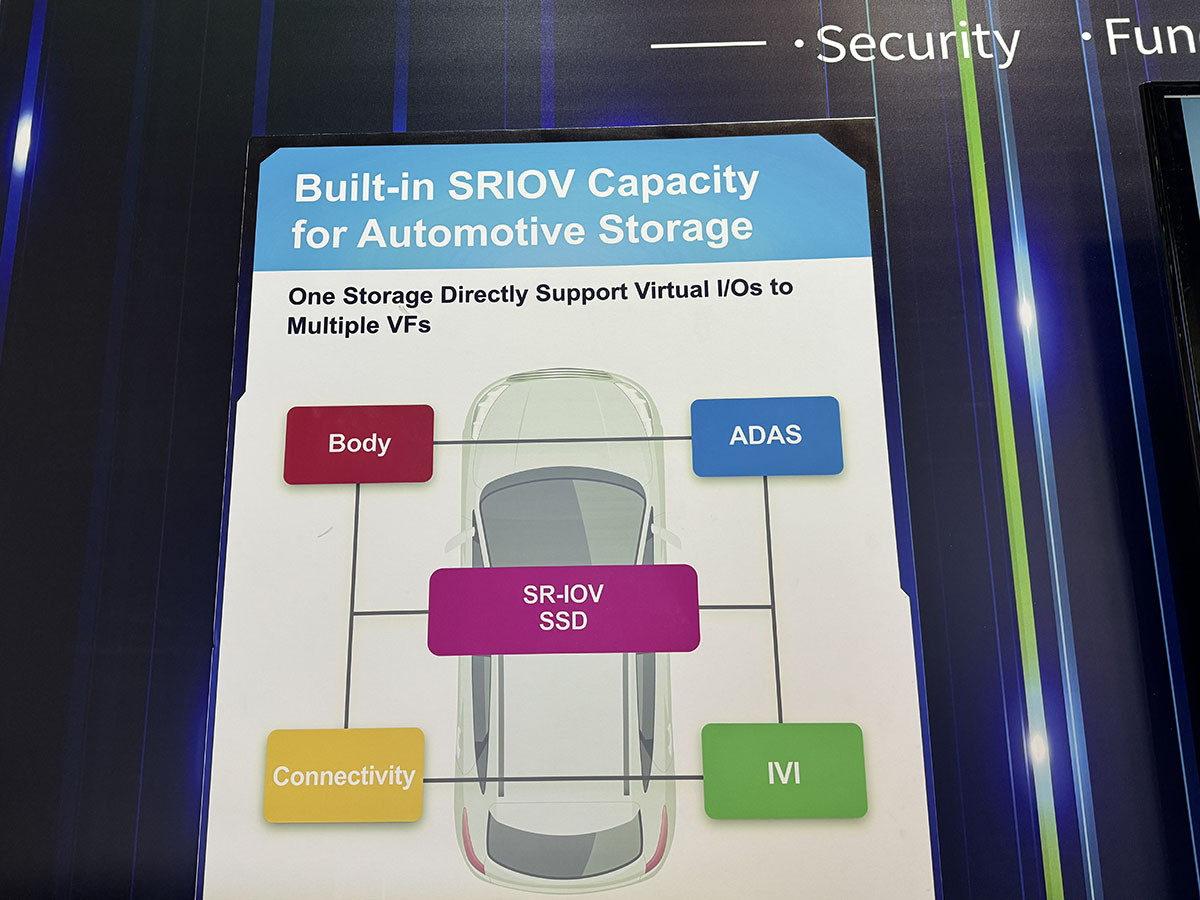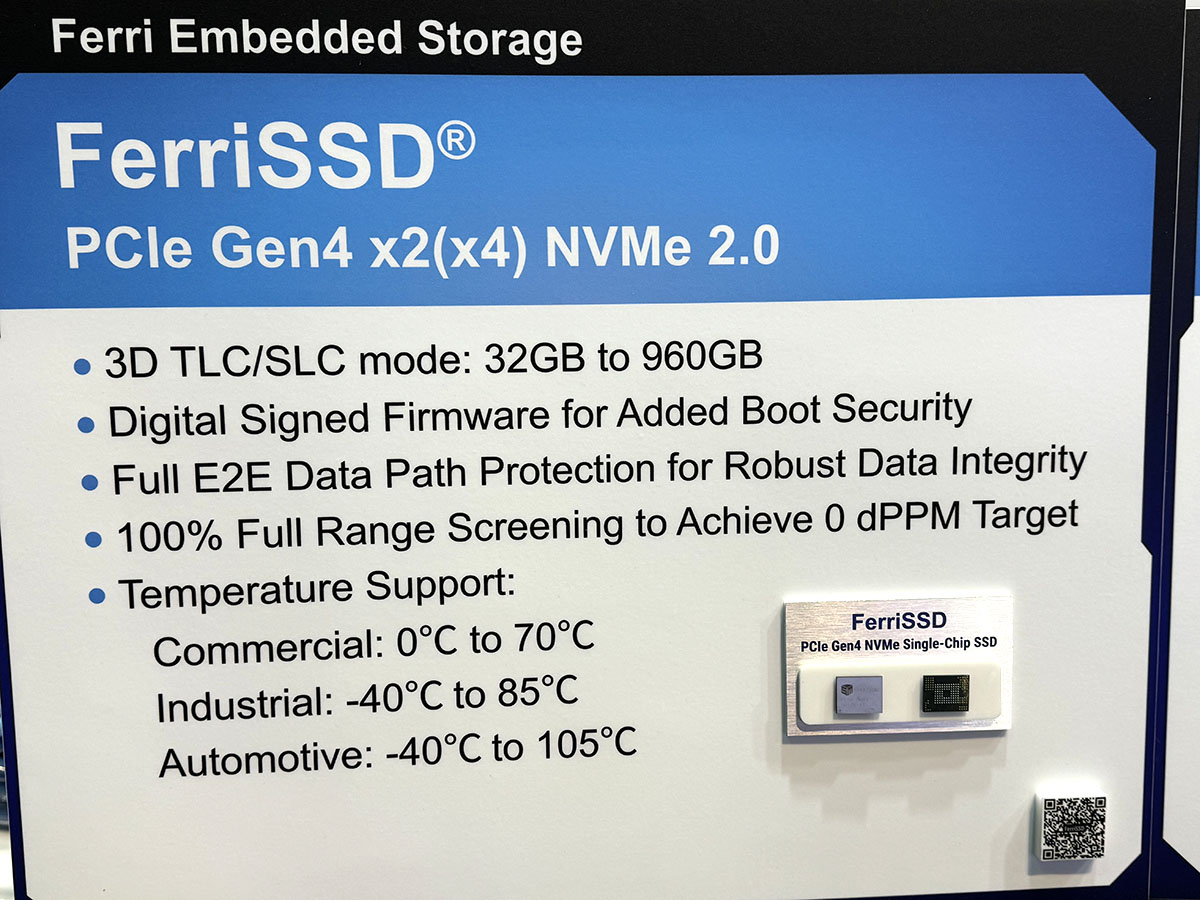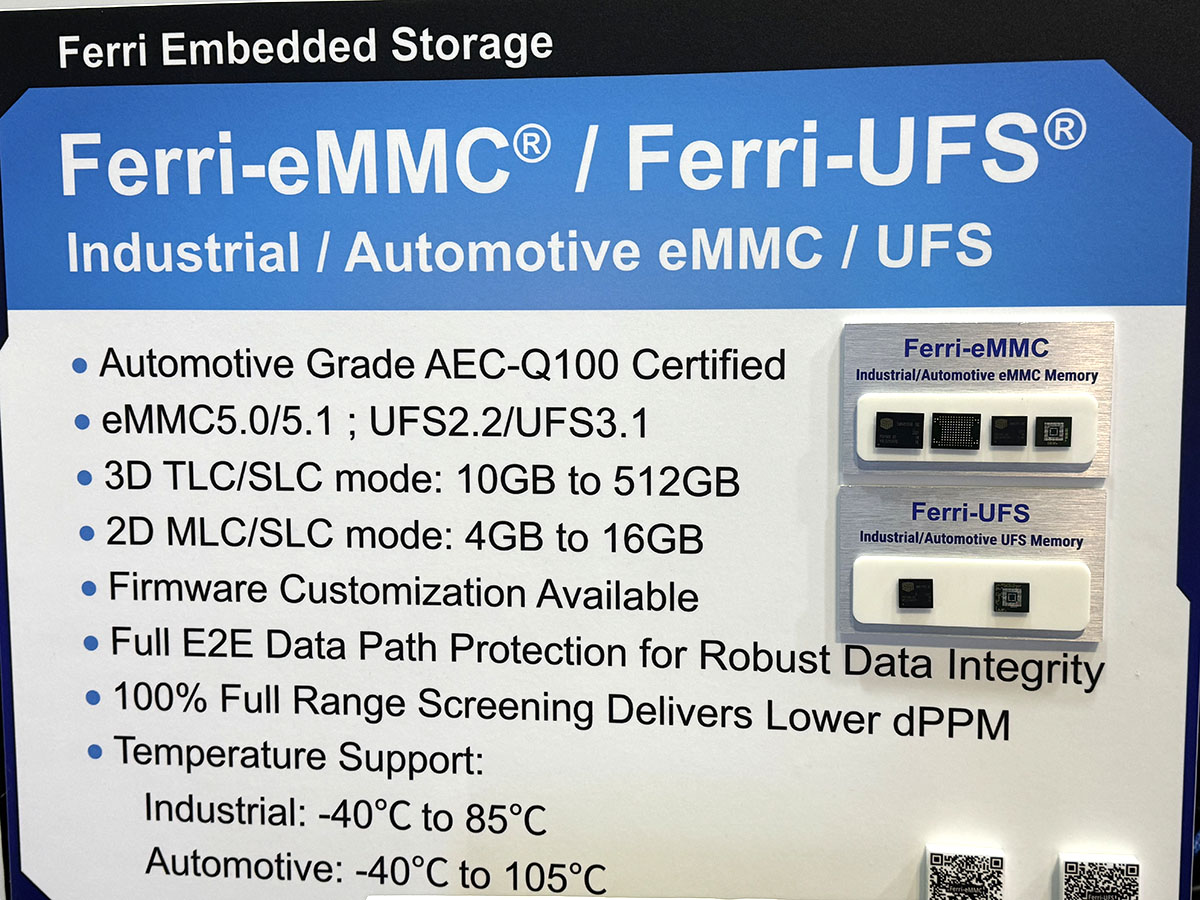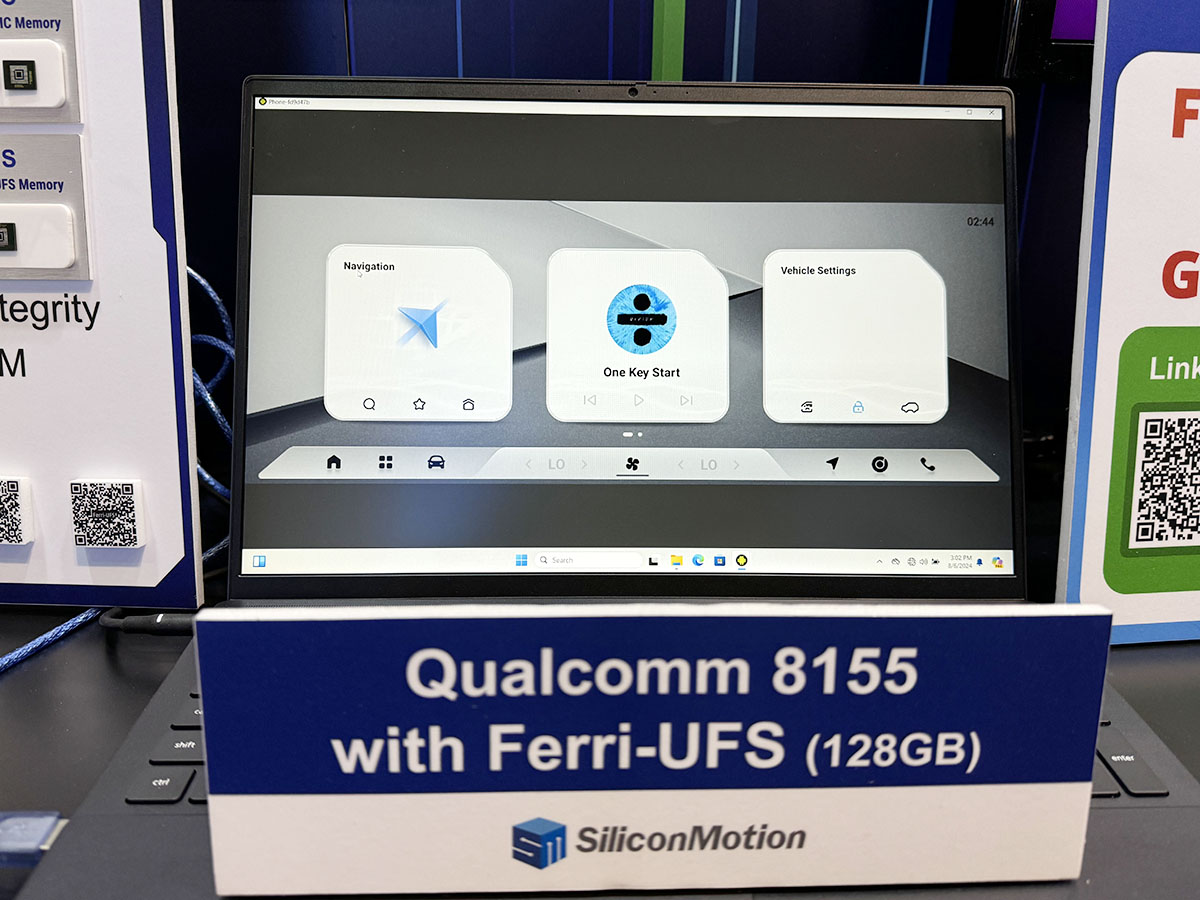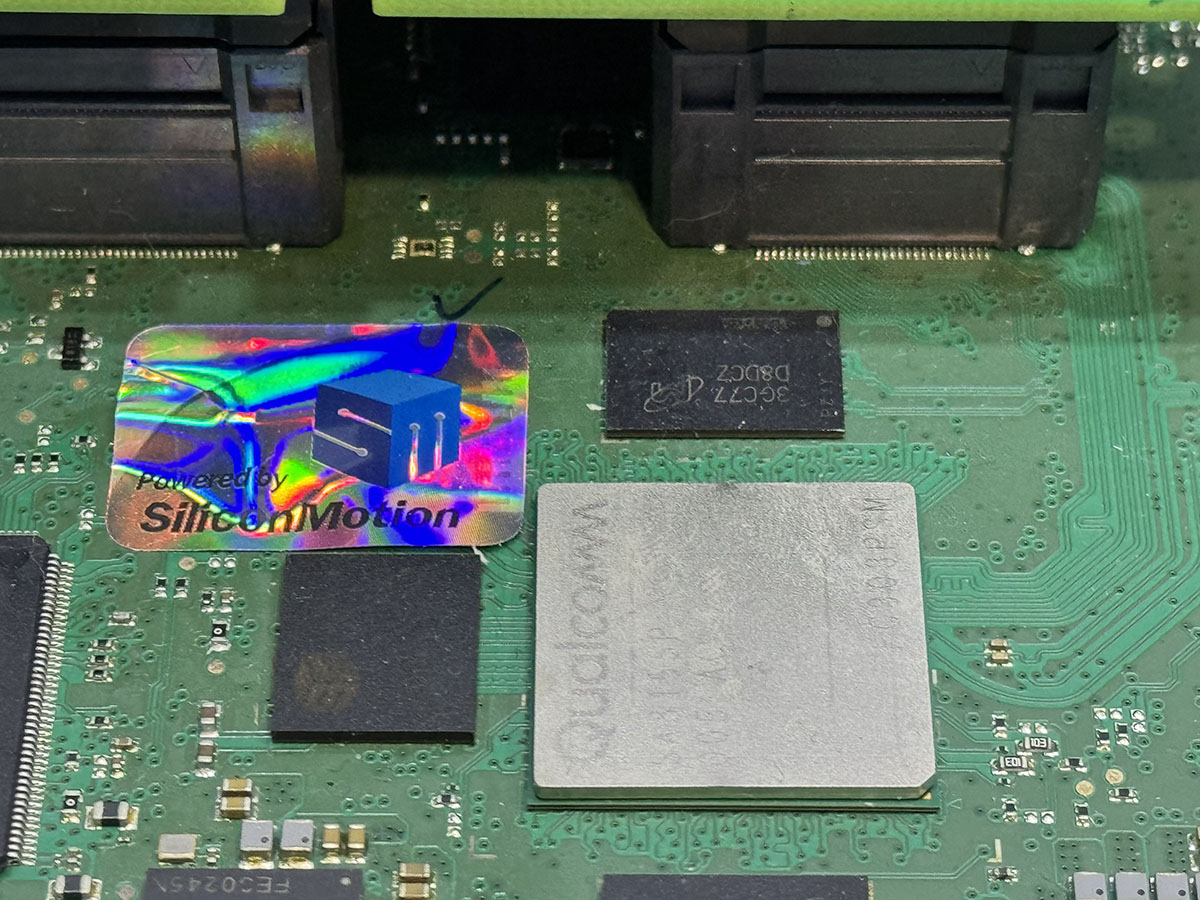August 22, 2024
FMS 2024: Silicon Motion unveils the Future of Software-Defined Vehicles
Keynote Overview: Automotive Focus in Robert Fan's Presentation
During his keynote at FMS 2024, Robert Fan, Senior Vice President of Global Sales at Silicon Motion, highlighted the transformative role of advanced storage solutions in the rapidly evolving automotive sector. He discussed the industry's shift towards software-defined vehicles (SDVs), driven by centralized electrical and electronic architectures. Robert emphasized that by 2031, more than 90% of vehicles will be software-defined, a significant increase from just 4.1% in 2022, according to Gartner.
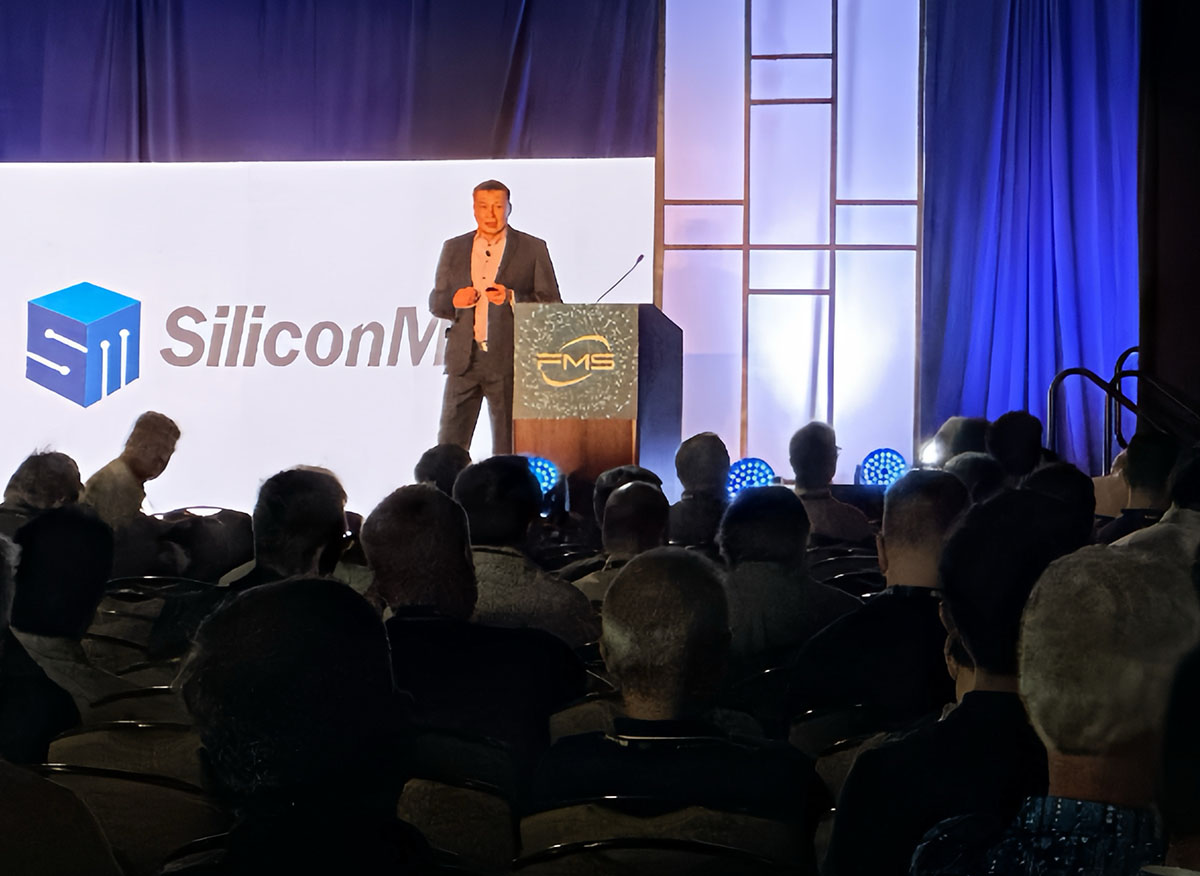
AI Integrated in Next-Gen Automotive Architecture
In his keynote, Robert highlighted how centralized architectures, powered by high-performance CPUs, are crucial for managing the diverse functionalities of modern vehicles. These high-performance CPUs rely on equally advanced SSDs to ensure rapid access to data, enabling features such as ADAS (Advanced Driver Assistance Systems), in-vehicle infotainment (IVI), and overall vehicle safety and security. Silicon Motion's innovations in automotive SSD controllers are key enablers of this transition, providing the speed and reliability necessary for next-gen automotive applications.
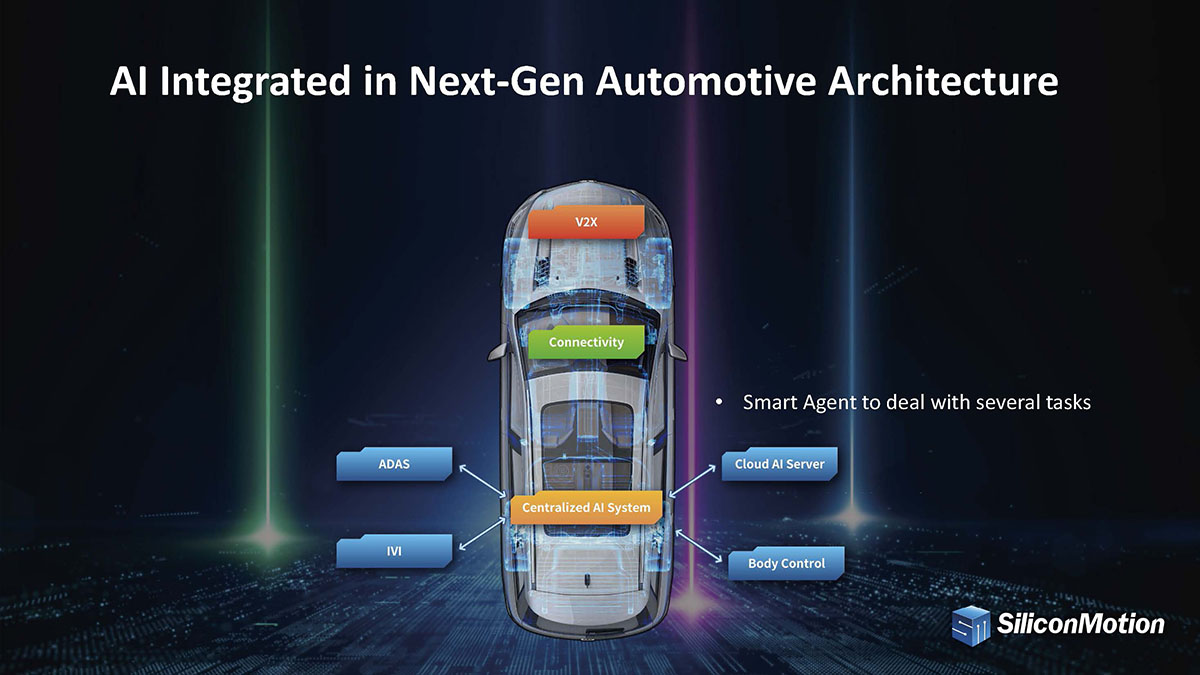
The World's First Automotive PCIe Gen4 SSD Controller Supporting SR-IOV: SM2264XT-AT
A key highlight of the presentation was the introduction of the SM2264XT-AT, the world's first SSD controller specifically designed for automotive applications with support for Single Root I/O Virtualization (SR-IOV). This controller supports up to eight virtual functions, significantly reducing the CPU's burden by efficiently managing multiple virtual machines that access the SSD simultaneously. This feature is critical for software-defined vehicles, where reducing latency and ensuring fast response times for various applications is paramount.
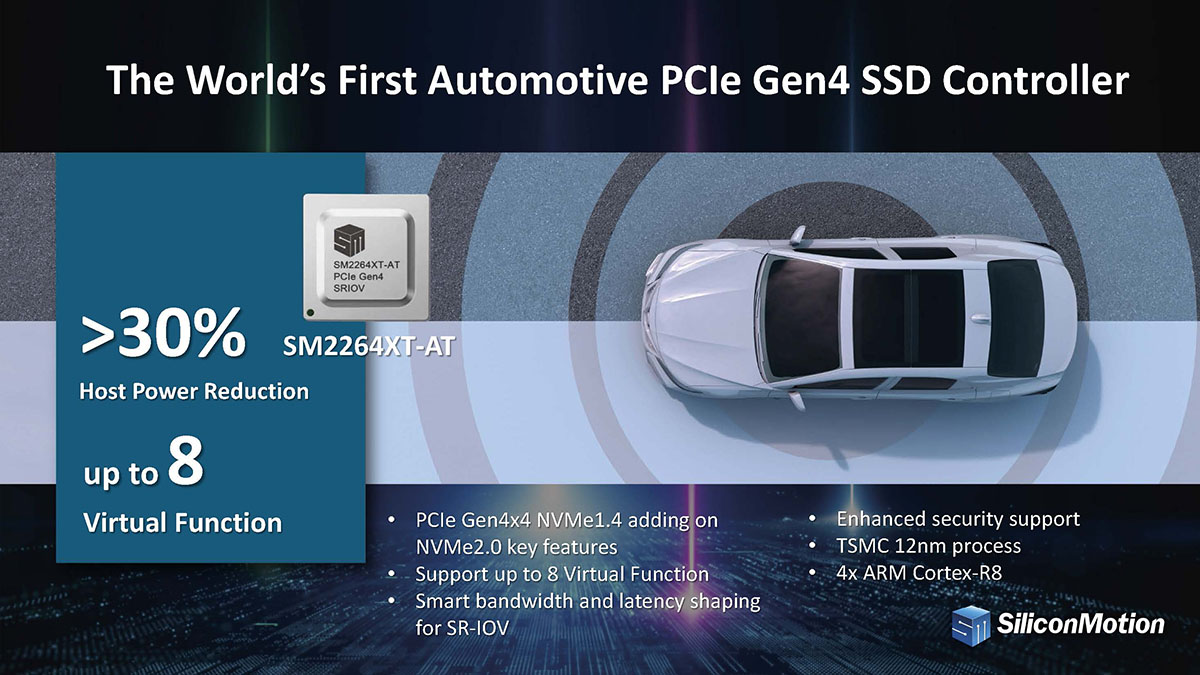
SM2264XT-AT belongs to a family of automotive SSD, UFS and eMMC solutions that Silicon Motion offers to the automotive industry.
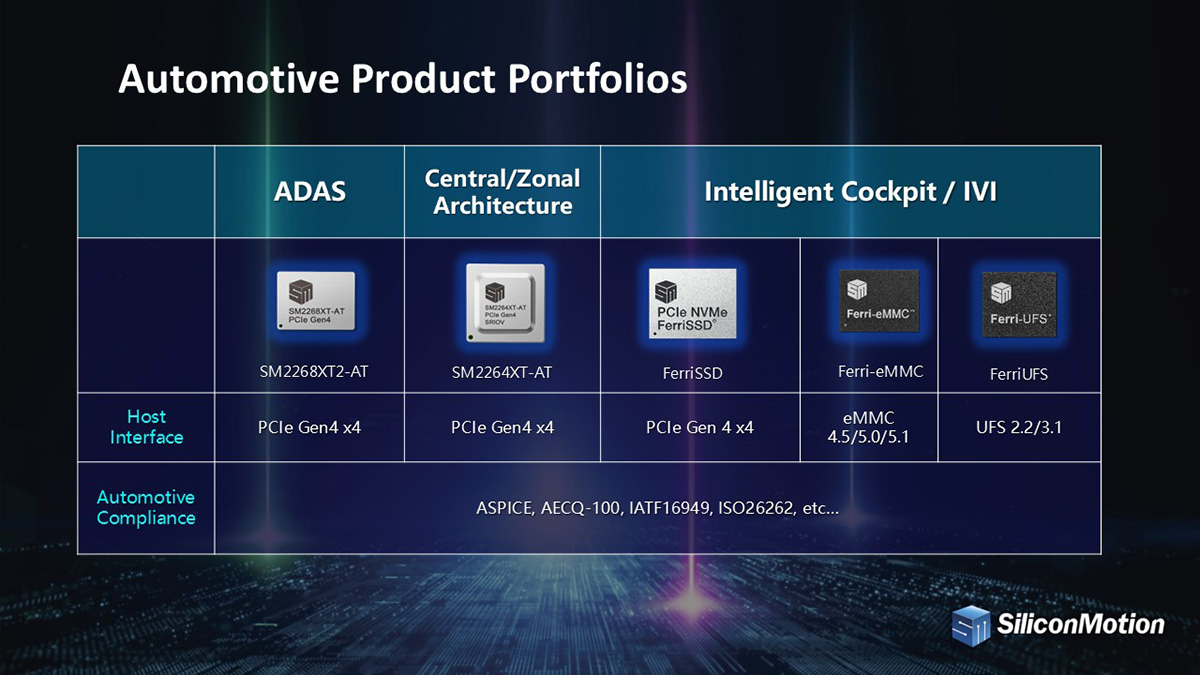 Our products are ideal for ADAS, Central computing and IVI applications and our solutions comply with the automotive certifications such as ASPICE, AECQ-100, IATF16949 and ISO26262 Functional Safety Compliance.
Our products are ideal for ADAS, Central computing and IVI applications and our solutions comply with the automotive certifications such as ASPICE, AECQ-100, IATF16949 and ISO26262 Functional Safety Compliance.
Live Demo: Real-World Applications of Silicon Motion's Automotive SSDs
Following the keynote, Silicon Motion's demo at FMS 2024 showcased how these innovations are being applied in real-world automotive scenarios.
Demonstrating Built-in SR-IOV Capacity for Automotive Storage
The live demo particularly focused on the built-in SR-IOV capacity, illustrating how a single storage device can support multiple virtual functions (VFs). This feature allows different vehicle subsystems—such as body control, connectivity, ADAS, and infotainment—to simultaneously access the storage without compromising performance. The demonstration underscored the efficiency and reliability of the SM2264XT-AT in managing these concurrent operations, making it an ideal solution for modern SDVs.
Reliable Storage for Automotive Applications: Ferri-SSD, Ferri-UFS, and Ferri-eMMC
In addition to the SM2264XT-AT, the demo also showcased Silicon Motion's FerriSSD, Ferri-UFS and Ferri-eMMC products. These embedded storage solutions are designed for automotive environments, offering high reliability and robust data integrity, even under extreme conditions. The demo highlighted their ability to seamlessly integrate into vehicle systems, providing the necessary durability and performance for long-term automotive use.
In another live demo at FMS 2024, we showcased an advanced In-Vehicle Infotainment (IVI) system powered by the Qualcomm SA8155 and 128GB Ferri-UFS. This demonstration highlighted the cutting-edge capabilities of our automotive storage solutions and underscored the value of our collaborative approach. Through close collaboration with key partners, we deliver solutions that are not only high-performing but also precisely tailored to meet the evolving needs of the broader automotive ecosystem.
As the world's leading supplier of NAND flash controllers, Silicon Motion provides a broad range of high-performance solutions that satisfy the strictest design requirements for quality, reliability, and safety. Our deep technical collaboration with NAND flash makers, automotive manufacturers, Tier 1 suppliers, and SoC providers ensures our automotive storage solutions will meet the future demands of the software-defined and connected vehicle ecosystem.
For more information about Silicon Motion's automotive storage solutions, please visit:
- Automotive SSD controllers: https://www.siliconmotion.com/products/automotive/detail
- FerriSSD: https://www.siliconmotion.com/products/FerriSSD/detail
- Ferri-eMMC: https://www.siliconmotion.com/products/Ferri-eMMC/detail
- Ferri-UFS: https://www.siliconmotion.com/products/Ferri-UFS/detail

